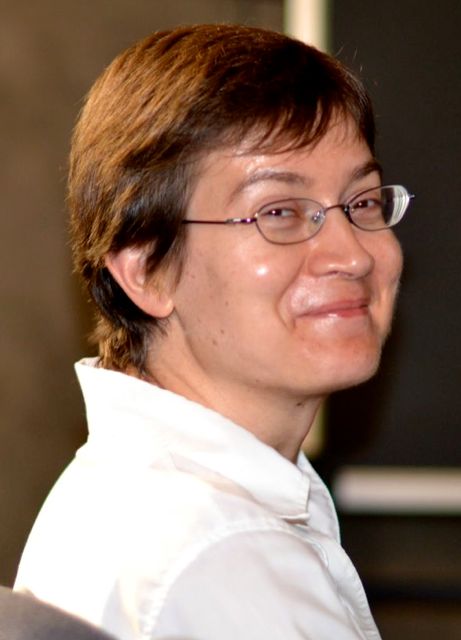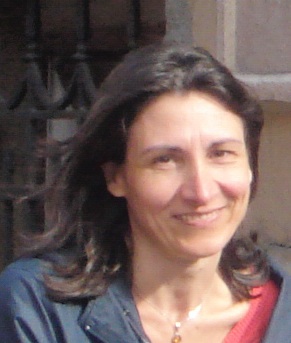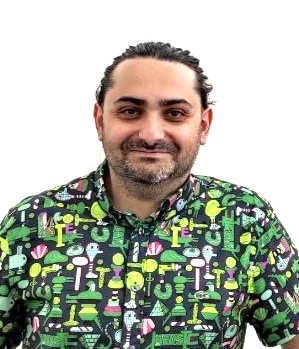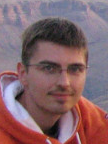Studiare
In questa sezione è possibile reperire le informazioni riguardanti l'organizzazione pratica del corso, lo svolgimento delle attività didattiche, le opportunità formative e i contatti utili durante tutto il percorso di studi, fino al conseguimento del titolo finale.
Calendario accademico
Il calendario accademico riporta le scadenze, gli adempimenti e i periodi rilevanti per la componente studentesca, personale docente e personale dell'Università. Sono inoltre indicate le festività e le chiusure ufficiali dell'Ateneo.
L’anno accademico inizia il 1° ottobre e termina il 30 settembre dell'anno successivo.
Calendario didattico
Il calendario didattico indica i periodi di svolgimento delle attività formative, di sessioni d'esami, di laurea e di chiusura per le festività.
| Periodo | Dal | Al |
|---|---|---|
| I semestre | 1-ott-2015 | 29-gen-2016 |
| II semestre | 1-mar-2016 | 10-giu-2016 |
| Sessione | Dal | Al |
|---|---|---|
| Sessione straordinaria Appelli d'esame | 1-feb-2016 | 29-feb-2016 |
| Sessione estiva Appelli d'esame | 13-giu-2016 | 29-lug-2016 |
| Sessione autunnale Appelli d'esame | 1-set-2016 | 30-set-2016 |
| Sessione | Dal | Al |
|---|---|---|
| Sess. autun. App. di Laurea | 25-nov-2015 | 25-nov-2015 |
| Sess. invern. App. di Laurea | 16-mar-2016 | 16-mar-2016 |
| Sess. estiva App. di Laurea | 12-lug-2016 | 12-lug-2016 |
| Sess. autun 2016 App. di Laurea | 23-nov-2016 | 23-nov-2016 |
| Sess. invern. 2017 App. di Laurea | 20-mar-2017 | 20-mar-2017 |
| Periodo | Dal | Al |
|---|---|---|
| Festività dell'Immacolata Concezione | 8-dic-2015 | 8-dic-2015 |
| Vacanze di Natale | 23-dic-2015 | 6-gen-2016 |
| Vancanze di Pasqua | 24-mar-2016 | 29-mar-2016 |
| Anniversario della Liberazione | 25-apr-2016 | 25-apr-2016 |
| Festa del S. Patrono S. Zeno | 21-mag-2016 | 21-mag-2016 |
| Festa della Repubblica | 2-giu-2016 | 2-giu-2016 |
| Vacanze estive | 8-ago-2016 | 15-ago-2016 |
Calendario esami
Gli appelli d'esame sono gestiti dalla Unità Operativa Segreteria Corsi di Studio Scienze e Ingegneria.
Per consultazione e iscrizione agli appelli d'esame visita il sistema ESSE3.
Per problemi inerenti allo smarrimento della password di accesso ai servizi on-line si prega di rivolgersi al supporto informatico della Scuola o al servizio recupero credenziali
Docenti
 maurizio.boscaini@univr.it
maurizio.boscaini@univr.it
 mila.dallapreda@univr.it
mila.dallapreda@univr.it
 bruno.gobbi@univr.it
bruno.gobbi@univr.it
Ugolini Simone
 simone.ugolini@univr.it
simone.ugolini@univr.it
Piano Didattico
Il piano didattico è l'elenco degli insegnamenti e delle altre attività formative che devono essere sostenute nel corso della propria carriera universitaria.
Selezionare il piano didattico in base all'anno accademico di iscrizione.
1° Anno
| Insegnamenti | Crediti | TAF | SSD |
|---|
2° Anno Attivato nell'A.A. 2016/2017
| Insegnamenti | Crediti | TAF | SSD |
|---|
Un insegnamento a scelta tra i seguenti3° Anno Attivato nell'A.A. 2017/2018
| Insegnamenti | Crediti | TAF | SSD |
|---|
| Insegnamenti | Crediti | TAF | SSD |
|---|
| Insegnamenti | Crediti | TAF | SSD |
|---|
Un insegnamento a scelta tra i seguenti| Insegnamenti | Crediti | TAF | SSD |
|---|
Legenda | Tipo Attività Formativa (TAF)
TAF (Tipologia Attività Formativa) Tutti gli insegnamenti e le attività sono classificate in diversi tipi di attività formativa, indicati da una lettera.
Sistemi operativi (2016/2017)
Codice insegnamento
4S00019
Crediti
12
Lingua di erogazione
Italiano
Settore Scientifico Disciplinare (SSD)
ING-INF/05 - SISTEMI DI ELABORAZIONE DELLE INFORMAZIONI
L'insegnamento è organizzato come segue:
Teoria
Laboratorio [Laboratorio 1]
Laboratorio [Laboratorio 2]
Esercitazioni
Obiettivi formativi
Il corso si propone di fornire un'introduzione ai principi e al progetto dei sistemi operativi, con particolare riguardo ai concetti relativi alle architetture software di un sistema operativo, alla gestione e sincronizzazione dei processi e alla gestione delle risorse del sistema.
A completamento del corso, gli studenti saranno in grado di comprendere il funzionamento di un sistema operativo e avranno le conoscenze necessarie per poter:
- sviluppare o modificare componenti di un sistema operativo;
- sviluppare applicazioni che utilizzino le funzioni messe a disposizione dal sistema operativo.
Programma
Teoria
---------
* Introduzione: Ruolo del sistema operativo e sua evoluzione. Elementi architetturali. Struttura e funzioni di un sistema operativo.
* Gestione dei Processi: Processi. Stati dei processi. Cambiamento di contesto. Creazione e terminazione di processi. Thread: thread a livello utente e a livello kernel. Cooperazione e comunicazione fra processi: memoria condivisa, messaggi. Comunicazione diretta ed indiretta.
* Scheduling: Modello a ciclo di burst di CPU-I/O. Scheduling a lungo, medio, breve termine. Scheduling con prelazione e cooperativo. Criteri di scheduling. Algoritmi di scheduling: FCFS, SJF, a priorità, HRRN, RR, a code multiple con e senza feedback. Valutazione degli algoritmi: modelli deterministici e probabilistici, simulazione.
* Sincronizzazione fra processi: Coerenza di dati condivisi, operazioni atomiche. Sezioni critiche. Approccio software alla mutua esclusione: algoritmi di Peterson e Dekker, algoritmo del panettiere. Supporto hardware per la mutua esclusione: test and set, swap. Costrutti per sincronizzazione: semafori e monitor. Alcuni problemi tipici di sincronizzazione: produttore/consumatore, lettori/scrittore, problema dei filosofi.
* Deadlock: Condizioni per l'innesco di un deadlock. Rappresentazione dello stato di un sistema con grafi di allocazione. Tecniche di prevenzione, rilevazione e ripristino. Algoritmo del banchiere.
* Gestione della memoria: Memoria primaria. Indirizzamento logico e fisico. Rilocazione, binding degli indirizzi. Swapping. Allocazione contigua della memoria. Frammentazione interna ed esterna. Paginazione. Supporti hardware alla paginazione: TLB. Tabella delle pagine. Paginazione a piu' livelli. Segmentazione. Tabella dei segmenti. Segmentazione con paginazione.
* Memoria Virtuale: Paginazione su richiesta. Gestione di page fault. Algoritmi di sostituzione delle pagine: FIFO, ottimale, LRU, approssimazioni LRU. Buffering di pagine. Allocazione di frame in memoria fisica, allocazione locale o globale. Thrashing. Località dei riferimenti. Modello del working set. Controllo della frequenza di page fault. Blocco di pagine in memoria.
* Memoria secondaria Struttura logica e fisica dei dischi. Tempo di latenza. Scheduling del disco: algoritmi FCFS, SSTF, SCAN, C-SCAN, LOOK, C-LOOK. Gestione della memoria di paginazione. Strutture RAID.
* File System: Concetto di file, attributi e operazioni relative. Tipi di file. Accesso sequenziale e diretto. Concetto di directory. Struttura di directory. Protezioni nell'accesso a file. Attributi e modalità di accesso. Semantica della consistenza. Struttura di un file system. Montaggio di un file system. Metodi di allocazione dello spazio su disco: contiguo, concatenato, indicizzato. Gestione dello spazio libero su disco: tramite vettore di bit, tramite liste. Realizzazione delle directory: liste lineari, tabelle hash.
* Sistema di I/O: Sistemi di Input/Output, Hardware per I/O. Tecniche di I/O: programmato, con interrupt, con DMA. Device driver e interfaccia verso le applicazioni. Servizi del kernel per I/O: scheduling, buffering, caching, spooling.
Laboratorio:
------------
* Programmazione della shell in ambiente Unix/Linux.
* Introduzione alla programmazione di sistema in ambiente Unix/Linux.
* Chiamate di sistema per la gestione dell'I/O.
* Chiamate di sistema per la gestione dei processi.
* Chiamate di sistema e tecniche di comunicazione e sincronizzazione inter-processo (pipe, fifo, code di messaggi, memoria condivisa, semafori, ...).
Bibliografia
| Attività | Autore | Titolo | Casa editrice | Anno | ISBN | Note |
|---|---|---|---|---|---|---|
| Teoria | Andrew S. Tanenbaum | I moderni sistemi operativi (Edizione 3) | Addison Wesley | 2009 | 8871925408 | Un classico, da consultare per vedere spiegati gli argomenti in una forma diversa da quella del libro di testo consigliato. |
| Teoria | Dhananjay M. Dhamdhere | Sistemi Operativi (Edizione 1) | McGraw-Hill | 2010 | 9788838664878 | Libro con taglio più americano. Da consultare per approfondimenti. |
| Teoria | Abraham Silberschatz, Peter Baer Galvin, Greg Gagne | Sistemi operativi. Concetti ed esempi. (Edizione 9) | Pearson | 2014 | 9788865183717 | Questo è il testo consigliato. Segue lo stesso flusso adottato dalle slide. |
Modalità d'esame
Per superare l'esame gli studenti dovranno dimostrare di:
- aver compreso i principi alla base del funzionamento di un sistema operativo
- essere in grado di esporre le proprie argomentazioni in modo preciso e organico senza divagazioni
- saper applicare le conoscenze acquisite per risolvere problemi applicativi presentati sotto forma di esercizi, domande e progetti.
Teoria
---------
L'esame della parte di teoria consiste in una prova scritta, contenente domande a risposta multipla, domande a risposta aperta ed esercizi.
E' prevista una prova intermedia a fine Novembre.
Laboratorio
-----------------
L'esame di laboratorio può essere superato in due modi: orale o scritto.
Modalità orale:
Durante il corso lo studente dovrà consegnare alcuni elaborati rispettando le scadenze elencate nel calendario delle lezioni. Quindi, al termine del corso, nella prima settimana di Luglio, lo studente sosterrà una prova orale in cui verranno discussi gli elaborati.
Chi non consegna tutti gli elaborati non può fare l'orale e deve sostenere l'esame come indicato nella modalità "scritto".
E' possibile sostenere la modalità orale solo nella sessione d'esame di Luglio.
Modalità scritto:
L'esame consiste nel risolvere alcuni problemi di programmazione di sistema (tramite programmi C o script di shell) durante uno degli altri appelli.
Voto finale
----------------
Il voto finale si ottiene dalla seguente formula:
Voto = Voto_teoria*0,5 + Voto_laboratorio*0,5.
Materiale e documenti
-

 Calendario lezioni I semestre
(it, 42 KB, 03/01/17)
Calendario lezioni I semestre
(it, 42 KB, 03/01/17)
-
 Dove trovare il materiale didattico
(it, 0 KB, 23/09/16)
Dove trovare il materiale didattico
(it, 0 KB, 23/09/16)
Tipologia di Attività formativa D e F
Insegnamenti non ancora inseriti
Prospettive
Avvisi degli insegnamenti e del corso di studio
Per la comunità studentesca
Se sei già iscritta/o a un corso di studio, puoi consultare tutti gli avvisi relativi al tuo corso di studi nella tua area riservata MyUnivr.
In questo portale potrai visualizzare informazioni, risorse e servizi utili che riguardano la tua carriera universitaria (libretto online, gestione della carriera Esse3, corsi e-learning, email istituzionale, modulistica di segreteria, procedure amministrative, ecc.).
Entra in MyUnivr con le tue credenziali GIA: solo così potrai ricevere notifica di tutti gli avvisi dei tuoi docenti e della tua segreteria via mail e anche tramite l'app Univr.
Prova Finale
Per essere ammessi alla prova finale occorre avere conseguito tutti i crediti nelle attività formative previste dal piano degli studi. Alla prova finale (esame di laurea) sono riservati 6 CFU. La Laurea in Informatica viene conseguita dalla/o studentessa/studente superando con esito positivo l'esame di laurea e completando in questo modo i 180 CFU stabiliti dal piano di studi. L'esame di laurea consiste in un colloquio che può essere basato su al più due delle seguenti opzioni: - breve elaborato scritto, anche in lingua inglese, su argomento assegnato; - esame orale, anche in lingua inglese, su argomento assegnato; - esame scritto, anche in lingua inglese, su argomento assegnato. La forma dell'esame viene concordata tra lo studente e il docente referente (relatore) il quale è membro della commissione d'esame. La valutazione dell'esame è basata sul livello di approfondimento dimostrato dallo studente, sulla chiarezza espositiva, e sulla capacità dello studente di inquadrare l'argomento assegnato in un contesto più ampio.
Svolgimento della prova finale.
La/lo studentessa/studente potrà avvalersi del supporto dei docenti del Dipartimento di Informatica per la scelta e l'approfondimento richiesto. È obbligo dei docenti fornire assistenza nell'ambito delle proprie attività di tutorato e ricevimento alle/agli studentesse/studenti per quanto riguarda l'approfondimento richiesto. Il punteggio finale di Laurea è stabilito da una apposita commissione di Laurea secondo le modalità indicate nel Regolamento di Ateneo, che esprime un giudizio finale in centodecimi con eventuale lode. Il punteggio minimo per il superamento dell'esame finale è di 66/110. II voto di ammissione è determinato rapportando la media pesata sui CFU degli esami di profitto a 110 e successivamente arrotondando il risultato all'intero più vicino. A parità di distanza, si arrotonda all'intero superiore. Per media degli esami di profitto si intende la media ponderata sui crediti. E' previsto un incremento al massimo di 8/110 rispetto al voto di ammissione, di cui 4 punti riservati alla valutazione dell'esame di laurea e 4 punti riservati alla valutazione del curriculum della/o studentessa/studente. La valutazione del curriculum avviene attraverso un calcolo che tiene conto positivamente delle lodi conseguite e degli eventuali periodi di Erasmus, mentre tiene conto negativamente degli eventuali anni fuori corso: se in corso: 3,5 + 0,2 * numero lodi; se fuori corso: 3,5 – 0,5* numero anni fuori corso + 0,1 * numero lodi; 1 punto ogni 3 mesi di Erasmus effettuato. L'attribuzione della lode, nel caso di un incremento che porti ad una votazione che raggiunga o superi 110/110, è a discrezione della commissione di Laurea nonché attribuita se il parere dei membri della commissione è unanime. Il relatore dell'esame di laurea potrà essere un qualunque docente strutturato dell'Ateneo che soddisfa almeno uno dei seguenti requisiti: componente del Collegio Didattico del corso di laurea, oppure componente del Dipartimento di Informatica, oppure che insegna in un SSD presente nel piano del corso di laurea.
Elenco delle proposte di tesi
| Proposte di tesi | Area di ricerca |
|---|---|
| Analisi e percezione dei segnali biometrici per l'interazione con robot | AI, Robotics & Automatic Control - AI, Robotics & Automatic Control |
| Integrazione del simulatore del robot Nao con Oculus Rift | AI, Robotics & Automatic Control - AI, Robotics & Automatic Control |
| Domain Adaptation | Computer Science and Informatics: Informatics and information systems, computer science, scientific computing, intelligent systems - Computer graphics, computer vision, multi media, computer games |
| Domain Adaptation | Computer Science and Informatics: Informatics and information systems, computer science, scientific computing, intelligent systems - Machine learning, statistical data processing and applications using signal processing (e.g. speech, image, video) |
| Tesi in ragionamento automatico | Computing Methodologies - ARTIFICIAL INTELLIGENCE |
| Domain Adaptation | Computing Methodologies - IMAGE PROCESSING AND COMPUTER VISION |
| Domain Adaptation | Computing methodologies - Machine learning |
| Dati geografici | Information Systems - INFORMATION SYSTEMS APPLICATIONS |
| Analisi e percezione dei segnali biometrici per l'interazione con robot | Robotics - Robotics |
| Integrazione del simulatore del robot Nao con Oculus Rift | Robotics - Robotics |
| Tesi in ragionamento automatico | Theory of computation - Logic |
| Tesi in ragionamento automatico | Theory of computation - Semantics and reasoning |
| Proposte di tesi/collaborazione/stage in Intelligenza Artificiale Applicata | Argomenti vari |
| Proposte di Tesi/Stage/Progetto nell'ambito dell'analisi dei dati | Argomenti vari |
Modalità e sedi di frequenza
Come riportato nel Regolamento Didattico, la frequenza al corso di studio non è obbligatoria.
È consentita l'iscrizione a tempo parziale. Per saperne di più consulta la pagina Possibilità di iscrizione Part time.
Le attività didattiche del corso di studi si svolgono negli spazi dell’area di Scienze e Ingegneria che è composta dagli edifici di Ca’ Vignal 1, Ca’ Vignal 2, Ca’ Vignal 3 e Piramide, siti nel polo di Borgo Roma.
Le lezioni frontali si tengono nelle aule di Ca’ Vignal 1, Ca’ Vignal 2, Ca’ Vignal 3 mentre le esercitazioni pratiche nei laboratori didattici dedicati alle varie attività.
Caratteristiche dei laboratori didattici a disposizione degli studenti
- Laboratorio Alfa
- 50 PC disposti in 13 file di tavoli
- 1 PC per docente collegato a un videoproiettore 8K Ultra Alta Definizione per le esercitazioni
- Configurazione PC: Intel Core i3-7100, 8GB RAM, 250GB SSD, monitor 24", Linux Ubuntu 22.04
- Tutti i PC sono accessibili da persone in sedia a rotelle
- Laboratorio Delta
- 120 PC in 15 file di tavoli
- 1 PC per docente collegato a due videoproiettori 4K per le esercitazioni
- Configurazione PC: Intel Core i3-7100, 8GB RAM, 250GB SSD, monitor 24", Linux Ubuntu 22.04
- Un PC è su un tavolo ad altezza variabile per garantire un accesso semplificato a persone in sedia a rotelle
- Laboratorio Gamma (Cyberfisico)
- 19 PC in 3 file di tavoli
- 1 PC per docente con videoproiettore 4K
- Configurazione PC: Intel Core i7-13700, 16GB RAM, 512GB SSD, monitor 24", Linux Ubuntu 22.04
- Laboratorio VirtualLab
- Accessibile via web: https://virtualab.univr.it
- Emula i PC dei laboratori Alfa/Delta/Gamma
- Usabile dalla rete universitaria o tramite VPN dall'esterno
- Permette agli studenti di lavorare da remoto (es. biblioteca, casa) con le stesse funzionalità dei PC di laboratorio
Caratteristiche comuni:
- Tutti i PC hanno la stessa suite di programmi usati negli insegnamenti di laboratorio
- Ogni studente ha uno spazio disco personale di XXX GB, accessibile da qualsiasi PC
- Gli studenti quindi possono usare qualsiasi PC in qualsiasi laboratorio senza limitazioni ritrovando sempre i documenti salvati precedentemente
Questa organizzazione dei laboratori offre flessibilità e continuità nel lavoro degli studenti, consentendo l'accesso ai propri documenti e all'ambiente di lavoro da qualsiasi postazione o da remoto.

 +39 045 802 7980
+39 045 802 7980

























